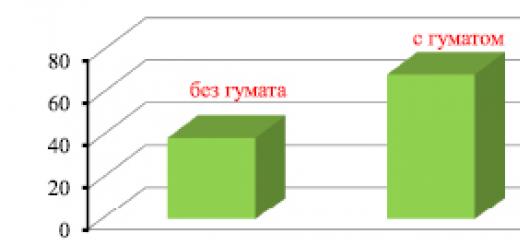Perfumes, dishwashing detergents, household gas, fragrances - a variety of odors surround us everywhere. Every day we inhale them, almost without thinking about whether they are harmful, whether dangerous odors exist and how to recognize them.
The most dangerous air fresheners are in the form of sprays. They contain toxic volatile substances that easily penetrate the body through the lungs and even the skin. Many manufacturers also add sodium benzoate and sodium nitrite to their products. Both substances are considered powerful poisons and cause mutations in human DNA, which provokes the development of diseases such as Parkinson's disease and cirrhosis of the liver. In addition, after regular use of an air freshener in the form of an aerosol, a person gradually begins to develop anemia (anemia). However, the harm of air fresheners in the form of gels is not much less, since they contain polymer gel, artificial fragrances and dyes that can cause severe allergies. American scientists conducted research in 2008, during which they found that people who often use air fresheners in their homes develop cancer 130% more often than those who prefer natural air fresheners. Modern technologies make it possible to recreate any smell in the laboratory. Whether it's fragrant lilacs, freshly cut grass or a delicious dessert. This is possible due to the combination of various chemicals. Air fresheners contain so-called fragrances or perfume compositions - synthetic flavors. Of course, there are natural ones, but their use on a production scale would be too expensive, and the smell would not be as lasting. Manufacturers usually do not indicate on the label what these compounds are, thereby reserving the right to disguise any elements under this name. However, even without fragrance, air fresheners are full of various chemicals.
The sprays contain propane and butane; in large quantities, these substances cause suffocation; linalool and solvent, which are potential allergens, are dangerous; formaldehyde depresses the central nervous system; limonin and pinin can cause cancer. According to Rospotrebnadzor, the permissible standard for air fresheners is hazard class 3-4 in terms of the degree of impact on the human body, these are moderate and low-hazard substances, their coefficient of possibility of inhalation poisoning is up to 29. Almost all household chemicals belong to these classes.
The ingredients stated on the labels do not always correspond to the real ones. In addition, many manufacturers, in an effort to attract more consumers of their products, position the air fresheners they produce as “destroying odor rather than masking it.”
Air fresheners contain a lot of toxins that easily penetrate the human body, but are much more difficult to remove from it. Air fresheners irritate mucous membranes, cause headaches and nausea, and provoke asthma and allergy attacks. Constant use of these drugs increases the risk of cancer! The following components of the refreshing mixture contribute to the development of asthma, breathing problems, leukemia, and bone diseases: benzene, petroleum distillates, formaldehyde, limonene. The negative effects of these substances have been proven by scientists. If air freshener cans state that they contain only natural ingredients, they also contain phthalates. Phthalates are chemicals, salts and esters of phthalic acid, which are widely used in industry. In cosmetics, phthalates are used as a binder (solvent and binding of other ingredients) component, as well as to ensure softness and impart an oily film.
Once in the human body, phthalic acid esters are transformed and split into monoesters. The next step is to oxidize the remaining monoester alcohol. At the same time, corresponding products are detected in the urine and removed from the body. Phthalates, especially those with a short alcohol chain, can be absorbed through the skin. Twenty-four hours after skin contact with radioactive diethyl phthalate (DEP), 9% of the radioactivity was detected in the urine, and after 3 days, radioactive material was detected in various organs. There appears to be some relationship between the metabolism and toxicity of phthalates, since short alcohol chain phthalates, which are highly toxic, are actually broken down into monoesters very quickly, and in animal studies, most of the toxic effects of phthalates were caused by the monoesters. Target organs for phthalates are the liver, kidneys and testicles. Phthalates accumulate in the human body, which negatively affects its hormonal levels, as well as the functioning of the liver and kidneys. Once in the human body, diethylhexyl phthalate (DEHP) rearranges fat metabolism, slowing down the breakdown and increasing the formation of fats. Such chemicals are deposited in fatty tissue and liver, which leads to disruption of various functions of our body. They have a particularly strong negative impact on the reproductive system. This is not the whole range of dangerous chemicals in air fresheners. A number of compounds are detected: phenol, dichlorobenzene, camphor, naphthalene, benzyl alcohol, ethanol, pinene, etc. Each of them has a certain negative effect on our body.
However, petroleum distillates, benzene and formaldehyde, which are part of many air fresheners, can not only cause the development of asthma and allergies, but also disrupt the entire metabolism, up to a disorder in the absorption of calcium (and impaired bone density) and even leukemia
Aerosols, in addition to having a detrimental mechanical effect on the respiratory system, also have a chemical effect. Prolonged contact with aerosols is fraught with the development of bronchial asthma. The smallest particles, passing through the small-caliber airways (bronchioles), irritate the nerve endings located in them. This, in turn, causes a spasm of the smooth muscles of the bronchioles. Also, aerosols, being a foreign substance and passing through the respiratory tract, trigger an allergic reaction in them, which contributes to swelling of the bronchial wall and the production of thick, viscous sputum. All these mechanisms lead to a decrease in the lumen of the airways and are a key link in the formation of suffocation.
But this is not the only danger of chronic inhalation of aerosols. Due to the negligible size of the particles contained in it, they can also have a chemical effect on the body. Systematic inhalation of dust rich in various metals or silicon oxide, over the years, leads to diseases such as silicosis, asbestosis, and pulmonary metallosis.
As you can see, in this case the respiratory system is mainly affected. More severe consequences occur when aerosols containing suspended liquid particles are inhaled. Once they enter the respiratory tract, they penetrate the blood vessels and spread throughout the body. In such situations, the liver and kidneys will suffer. They, being natural blood purifiers, retain all toxic and poisonous substances that enter the blood.
The liver, like any other organ, has enormous reserve capacity and copes with “its job” for many years (here we are talking about long-term human contact with small doses of aerosols). However, there comes a time when the liver fails and it cannot cope with the increased load. Then all foreign substances pass through the blood to other organs.
Behind the liver, as a rule, the functioning of the kidneys is disrupted, and then the brain is damaged. Efficiency and memory decrease, fatigue increases, and headaches occur more often. Trouble does not bypass the heart either: the rhythm is disrupted, blood pressure changes.
If the damaging factor is not removed, then all of the above pathological processes become irreversible, with a disastrous outcome. Timely identification and restriction of oneself from dust and aerosols promotes rapid recovery and restoration of previous performance. headache. Trouble does not bypass the heart either: the rhythm is disrupted, blood pressure changes.
It is no secret to everyone that the health and mood of any person can be influenced by a certain aroma or smell. And this fact has been known since ancient times.
Already in the modern world, scientists have developed tables by which you can find out for sure which aroma can lift your mood and relieve a headache.
This was noticed many centuries ago. Individuals who had a more sensitive sense of smell were considered more sensitive.
Since the first days of mankind, knowledge on aromatherapy has accumulated over the centuries. Even then, the medicinal properties of strong-smelling plants and their mixtures were noticed. And the healers of that time had knowledge that could help a person, and these people were considered wizards.
The sense of smell plays a very important role in human life. It is expressed both in the protective function of the human body, and in his emotions and impressions. Sometimes one particular smell can benefit both the body as a whole and the psyche, raising vitality.
Fragrant substances can be obtained either naturally, by isolating odors from aromatic plants, or artificially, through chemical experiments. An example of such a path is perfumery.
If we analyze the interpretation of the word “perfumery” literally, we can get the following: the use of various aromatic substances to aromatize the air, by burning these substances in a bowl over open coals and saturating the premises with aromatic smoke.
This method has been used since very ancient times, and this method was especially popular in worship services, including magical rituals.
If you consider the history of aromatherapy, you will find out that such therapy has been used for many centuries in a row. Even in ancient times, healers learned to get rid of many ailments with the help of aromatic essential oils.
This treatment was widely used by Hippocrates, Galen and many other healers of those centuries.
Each person inhales thousands of odors per day, half of which are inaccessible to the human sense of smell. Of course, there are smells that are favorite for a person, and there are, on the contrary, unpleasant.
Some aromas are perceived by humanity at the subconscious level, and they bring certain emotions and memories to a person.
Conscious reactions to different odors can be divided into different groups. Some that are perceived by humans as a threat, for example, the smell of smoke during a fire, or the smell of gas during a leak. Others can bring positive emotions, such as the aroma of a delicious dish or the aroma of a loved one's eau de toilette.
Of the five human senses, smell is the most sensitive and fastest sense, transmitting information to the brain at high speed, almost instantly. The nose is highly sensitive, especially to strong smelling odors.
There are great hopes for aromatherapy. This is due to the fact that aromatherapy is already used not only in medicine and industry, but also in other areas of human life, while helping a person improve his well-being in many ways.
Using the example of educational institutions, their benefits can be shown. At the beginning of classes, a mixture of essential oils is sprayed into the premises, the smell of which helps to increase mental activity, and at the end of the school day, you can fill the classroom or auditorium with an aroma that will help children relax.
In this way, children will be able to better master the school curriculum, they will not be so tired, and there is an opportunity to relieve most children of the stress that so often arises during the learning process.
Aromatherapy
 Scientists have proven a very important fact that a certain aroma, obtained from natural raw materials or by a synthetic method, will seem the same to our sense of smell, but this is not true, they will always be different. The whole point is that both scents can have the same aroma, but the difference between them is that in perfumes with a synthetic scent, only the aroma is.
Scientists have proven a very important fact that a certain aroma, obtained from natural raw materials or by a synthetic method, will seem the same to our sense of smell, but this is not true, they will always be different. The whole point is that both scents can have the same aroma, but the difference between them is that in perfumes with a synthetic scent, only the aroma is.
And in addition to the smell, there is also a therapeutic effect that has a beneficial effect on the human body.
Currently, our studio has developed a training course “”, which anyone who wants and prefers everything natural can study and apply.
To understand the whole mystery of aromatherapy, it is worth familiarizing yourself with and studying its centuries-old history. After all, all these centuries, aromatherapy was practically in the main place in human life, and was connected with all the sacraments that took place among them.
But for some time, aromatic oils were forgotten and only at the beginning of the 20th century, thanks to the French chemist R. Gattefosse, who was involved in the perfume business at that time, aromatic oils were revived.
Once, during laboratory experiments, Gattefosse had an explosion, after which he severely burned his hand, and in order to somehow relieve the pain, he put his hand in a container with lavender essence.
To his surprise, the hand healed very quickly after the burn, and no scars even formed. After this incident, Gattefosse began to conduct research on the medicinal properties of essential oils.
When the First World War began in the world, Gattefosse tried to use various essential oils in the treatment of the wounded and sick. The results were amazing; almost all patients survived and recovered without complications.
To treat the wounded, he used aromatic oils of thyme, chamomile and lemon. It is from Gattefosse that the word aromatherapy comes - treatment using aromatic oils.
The second researcher in this area was Professor P. Rovesti. Through his research, he was able to prove that using inhalations with various herbs can relieve depression and also anxiety.
According to the professor, aromatic smells help a person release various emotions, which in turn could provoke a number of different diseases.
Already in those days when humanity worshiped fire, various aromatic substances were actively used. Every grain of knowledge gained as a result of the use of incense in various spheres of human life was accumulated and passed on by word of mouth, then these recipes began to be written down and passed on to the younger generation.
In these recordings you can learn all the secrets of the healing magic of all the aromatic plants from which essential oils are obtained. It is not for nothing that certain incense is still used in worship, folk medicine and magical rituals.
Smell
 If we consider all of a person’s senses, we can come to the conclusion that smell is the fastest in terms of the speed of information transfer to the brain. This happens instantly, on a subconscious level. And if you measure the numerical value of the sensitivity of the nose, you can get very large numbers.
If we consider all of a person’s senses, we can come to the conclusion that smell is the fastest in terms of the speed of information transfer to the brain. This happens instantly, on a subconscious level. And if you measure the numerical value of the sensitivity of the nose, you can get very large numbers.
When scientists studied the structure and functions of the brain, a very important discovery was made.
This discovery is that the region that is responsible for conscious thought originates from the region that is responsible for the human sense of smell.
Also in this area all the emotional processes that happen to a person take place. Even in the ancient teachings of Thoth, this area was called the “center of the brain.” In connection with everything said above, the nose can safely be called a real nasal brain. This is because the cerebral centers of the brain are interconnected with the sinuses, hence we can say that there is a connection with a person’s sense of smell.
When a person inhales air with a certain smell, the following happens inside the nose. First, the process of dissolving aromas in the nasal mucosa occurs, and then the nerve endings of the olfactory nerve are irritated, and from it information about the smell that was inhaled is transmitted through certain cells to the hypothalamus.
A very important fact is that almost all information about the smell passes directly to the hypothalamus. This is due to the fact that this part of the brain is responsible for a lot of things that can happen in the human body.
These functions include temperature, hunger, growth, awakening, thirst, blood sugar, sleep and sexual arousal. The hypothalamus is also responsible for angry and joyful emotions.
In parallel to the hypothalamus, odor information is transmitted to the hippocampus, this area is responsible for functions such as memory, attention and imagery. Therefore, for each person, a specific aroma has an association with a certain event that once happened to him.
In this regard, we can say with confidence that when a person inhales a smell, a certain signal is sent to the brain, which then spreads throughout the body.
Smells affect people's mood and health
 Humanity lives in a world that is filled with various smells that we inhale constantly. But a person simply does not feel most of the irritants, but the brain distinguishes them, so the smell of a large number of odors occurs on a subconscious level.
Humanity lives in a world that is filled with various smells that we inhale constantly. But a person simply does not feel most of the irritants, but the brain distinguishes them, so the smell of a large number of odors occurs on a subconscious level.
If we consider the conscious reaction to odors, we can imagine the human brain as a computer that processes all information received from the outside.
At the same time, he needs to reconsider each impulse and assign it to a certain group, which can relate to threats and dangers to a person, or, on the contrary, bring pleasant sensations. For example, the aroma of cooked food will only cause pleasant sensations in a person. But smoke from a fire will create concern.
As everyone knows, a person is a spiritual person, for whom pleasure and joy are not in last place, striving to get as much of them as possible in life. But we must remember that any smell, in addition to positive emotions, can also bring negative feelings.
In this regard, each of us strives to make everything around us smell fragrant, and we try to remove or avoid everything that smells bad. Therefore, each of us has a favorite scent of eau de toilette, which lifts our spirits and creates a pleasant space around us.
It has already been proven that by using certain scents you can achieve a lot in trade on the part of buyers. Also, with the help of a certain smell, you can activate mental activity, and, consequently, performance.
English poet D.J. Byron noted that the muse visited him only if his room was smoky with the smell of truffle. And at one time, Avicenna proved that it was rose essential oil that promotes better thinking, increasing speed.
In 1939, physiologist D.I. Shatenstein scientifically substantiated and proved that in nature there are irritants that affect the body, as well as its functions and performance.
In business, you can use various aromatic scents that help increase productivity and the quality of any work. This is especially practiced in many companies in Japan.
With the help of an air conditioning system throughout all rooms, each workplace is supplied with a certain smell, which helps workers get into the mood of work and increase their productivity. Some enterprises distribute certain fragrances through a computer system.
The Japanese company Sumitsa created a special rest room for this effect, and if an employee thinks that work is becoming a burden for him, he can come and receive a charge of positive energy.
Also, many directors, before convening a meeting, spray a special mixture of “aromatic activator” in the room where the event will be held. Employees of the company  Sumitsu developed aromatic mixtures of strong-smelling plants and flowers that promote better work by specialists such as programmers and typists.
Sumitsu developed aromatic mixtures of strong-smelling plants and flowers that promote better work by specialists such as programmers and typists.
It has already been proven that when programmers inhale a certain smell, the number of errors decreases: when inhaling the aroma of jasmine, the number of errors becomes lower than usual by 3%, with the aroma of lavender - by about 20%, and with the smell of lemon, this figure is 54%.
It has also been proven that the aroma of essential oils from plants such as musk, eucalyptus and lemon has a beneficial effect on mental work, stimulates the nervous system, relieves fatigue and improves performance.
If we consider the effect of rosemary on a person, we can confidently say that this aroma will help make the learning process more enjoyable, as it helps stimulate memory.
The smell of a rose will be useful if a person needs to concentrate on something and quickly and efficiently complete a number of tasks. Essential oils of orange, rose, sandalwood, lavender and rosemary are perfect for this.
When conducting clinical and laboratory studies, it was established that a certain smell has the ability to reduce stress and relax. Over the course of 18 years of research, patients of different age groups were given a specific smell, apricot, to smell while relaxing.
The essence of this experiment was to present a certain aroma to a person when he is completely relaxed. As a result, those patients who participated in the study learned to relax as soon as they heard a familiar smell.
This relaxation option will be very useful for older people, who are most susceptible to various stressful situations. For this generation of people, stress can arise even from the slightest trouble, not to mention the fact that they most often lose someone close to them, cannot take care of themselves, and are very worried about crisis situations in the country. Any situation can unsettle older people and put them into a state of stress.
An electroencephalograph was also connected to the study, which monitors the brain activity of patients. After the person was seated in a chair and everything necessary was secured on it, the patient was allowed to smell a certain smell.
The study was aimed at studying mental activity under the influence of specific aromas. For this purpose we used the aroma of rosemary, peppermint and basil.
Based on the results of the examination, it was found that there was more beta radiation in the encephalogram, which indicates increased mental activity, and the patient completed the proposed tasks much earlier than a person who did not inhale the aroma of these plants did.
It has also been proven that during sleep a person also senses all smells. And this fact can be used to correct any restless sleep.
After conducting electroencephalograph studies among two groups, one of which included healthy people, and the other - patients suffering from psychosis, it was proven that the aroma of rose and jasmine stabilizes the nervous system and also improves sleep. In folk medicine, hop cones are used to improve sleep, which are sewn into pillows.
Odor associations
 British scientists conducted a study on human reactions to certain aromas. After conducting tests, scientists came to the conclusion that for any person, each smell evokes certain associations, that is, every smell in the world is associative. From this we can conclude that every event that happened in a person’s life was accompanied by a certain aroma.
British scientists conducted a study on human reactions to certain aromas. After conducting tests, scientists came to the conclusion that for any person, each smell evokes certain associations, that is, every smell in the world is associative. From this we can conclude that every event that happened in a person’s life was accompanied by a certain aroma.
As a result, a certain event is remembered with a specific smell.
As a result, throughout our lives we can remember at any moment, any moment that once happened in your life, be it positive or negative. And often this happens at the most inopportune moments.
Let's imagine that once in his youth a man had a fight with one of his relatives, and at that moment the room smelled of lilacs that were on the table. And years later, having felt the painfully familiar smell of lilac, this person’s mood will deteriorate, he will become irritable and touchy. The thing is that a person has already forgotten what happened then, but the subconscious mind remembers that in the presence of the smell of lilac the person was in a bad mood.
If done correctly, you can use certain aromas to help a person get rid of emotions that are very deeply hidden. This fact is important for those people who have diseases associated with the suppression of emotions. And when they are released, the person usually begins the healing process.
With the help of rosemary aromas, you can not only perfectly stimulate memory, but also get rid of this kind of stress. And this important fact can help anyone throughout their life.
Scientists have proven that processes such as neurological and hormonal are interconnected with the sense of smell. And, in their opinion, in the near future, using various aromas, it will be possible to adjust a person’s performance, mood, behavior and emotions.
And this is not science fiction, this is a proven fact, which has already begun to be applied worldwide in various spheres of human life. Therefore, make it a rule to never part with fragrances that are pleasant to you.
Human body odor
 When discussing the topic of smells and aromas, one cannot help but recall the smell of the human body. After all, each person is individual in himself, which means his smell is also unique. After all, animals find their owner by his unique smell.
When discussing the topic of smells and aromas, one cannot help but recall the smell of the human body. After all, each person is individual in himself, which means his smell is also unique. After all, animals find their owner by his unique smell.
Of course, the main human odor is sweat. But a newborn baby recognizes his mother only by the smell that she exudes along with sweat; he does not see or hear yet, but the child’s sense of smell is already developed, even more than that of an adult.
Human sweat and its smell are still little studied, but many scientists are striving to study it. If you believe Agni Yoga, then the human excretory system has a direct connection with the person’s aura and his mental reactions.
Therefore, the concept of this connection, a complete study of sweat and human smell could help to understand the unity and mutual understanding of the two worlds of humanity - the spiritual and the physical.
It has already been proven that during certain emotional outbursts, a chemical reaction occurs in the human body, which can be felt in the form of a certain odor in sweat. The differences can be found in the simplest things.
For example, sweat that comes from hard work, and sweat that comes from eating delicious food.
The sweat when reading a prayer will also be different from the sweat of self-interest and wind. Just like the sweat of an athlete while jogging is different from the sweat of a running hooligan. And this is because each of these people had their own emotional state.
During times of strong excitement or sudden fear, a person suddenly begins to sweat, this is due to the fact that during this a certain reaction occurs in the body - the transformation of energy, which in turn causes sweat with a certain odor.
When a person's mental state changes, the color of his aura also changes. This relationship will always be interesting, and every scientist wants to unravel this mystery, to find the thread that connects a certain smell of sweat with its effect on others.
There is one fact in history that demonstrates the influence of a person’s smell on others in a closed room. This happened on the first spaceships, when the crew was overcome by general fear and depression, all people became aggressive.
This is due to the fact that the air in the cabin was not completely purified, and the smell of panicking people remained present on the ship - the smell of panic and fear. This is where the phrase “smell of fear” comes from, which gives confidence that there is the smell of other human emotions - love, hatred, resentment, etc.
This is confirmed by dogs that have a highly developed sense of smell. In different situations, they will react differently to a person: they may start to rush, or, on the contrary, come up to be petted, or begin to growl in defense of their offspring. They feel human emotions with their nose.
But sometimes a person can detect unusual aromas that cannot be explained in any way. These two unusual aromas are reminiscent of the smell of flowers and the smell of burning and sulfur. It is difficult to say where this or that aroma came from, especially if the person in the room is in the room himself and did not spray anything.
For an explanation, you can turn to Agni Yoga. In addition to the physical world in which a person lives, there is also a Subtle World, which is full of various aromas that are inaudible in our world.
When a person begins to feel the subtle aroma of flowers, it can be argued that the subtle energy of the Good Beginning is nearby, which is transformed in the form of the aroma of violets or freesia.
It’s not without reason that we feel a floral aroma near icons and relics of saints. There is a belief that when a light aura returns a particular person to the bloodless kingdom, he is given the pleasant smell of flowers.
And the Evil Origin can be recognized by the unpleasant smell of sulfur or burning. According to Agni Yogi, people possessed by evil spirits can be recognized precisely by this unpleasant odor, which is released along with a person’s sweat.
Create a good mood!
Nothing can help lift your spirits like the right essential oils. They influence the hidden facets of human perception, so they quickly find “small holes” that prevent people from being happy and cheerful.
What is most interesting and amazing is that essential oils, with their invisible blanket of scents, can create real miracles that can only be felt, but not seen.
If you have problems with mental stress, you often feel tired, although the working day has only recently begun, then essential oils such as mint and sage will come to the rescue; eucalyptus and lavender oils will be an excellent addition to this duet.
To help people with the help of essential oils, science has introduced a new branch of psychology, which is called aroma psychology. It is not aimed at convincing people that aromatic oils can help them, but rather encourages them to try and feel the effect that can be used to achieve those sensations that a person lacks. You can learn more about this area on our website.
Everyone has the power to change what gives them anxiety and worry.
This is not the time to give up!
A person may well be able to help himself on his own, because the mood has always been under the control of the person himself, and not the doctor to whom many turn. Willpower and fortitude do not play a special role here; the most important thing here is to understand what is happening in the general state and how to help it, to tune in.
Help is always closer than it seems, and much more accessible than expected.
The ability to control oneself is an opportunity that is given only to man. Sometimes you just need to let everything go and think, is it worth holding back?
Maybe, on the contrary, you need to open up and allow yourself to be helped in ways that were not previously understood by consciousness.
Learn to control your mood - it's a completely easy process!
Memories have quite a lot of positive energy, which can cope with various worries and experiences.
It’s enough to remember the spring smell of a first date with your loved one and your mood immediately lifts.
Be happy!
More details
- Previous:
- Back:
The impact of odors on humans is enormous, although little has been studied. Have you ever found yourself in a situation where the determining factor in making a decision was not the weighty argument of an intelligent interlocutor, but a transparent, barely perceptible smell in the air? If you answered no to this question, then you were very mistaken.
Fragrances rule the world! Since the middle of the last century, the question of how odors affect a person began to be actively studied by scientists all over the world, and even a new direction of science appeared, such as aromopsychology or the psychology of smells. The use of some essential oils for medicinal purposes by our ancestors received scientific justification - aromatherapy was recognized. But first things first.
Smells are important in the lives of animals and humansIn this regard, a person is much more frivolous, and when choosing food, he relies more on his own eyes than his nose. However, if seemingly appetizing foods are spoiled and emit repulsive pungent odors, a person will not even try the food. The role of smell in human life is great.
As the legendary “Scorpions” sing, “we are animals” (we are animals), which means, like our smaller brothers, we are subject to instincts: reproduction, self-preservation and others. A simple example: before eating food, animals carefully sniff it - in this way they determine whether this food is dangerous. This is how the olfactory system helps our smaller brothers collect vital information.
The smell of a loved one
Less obvious, but even more significant is the influence of smells on sex life. People, just like animals, determine compatibility with a potential sexual partner and even the possibility of starting a family with him... by smell. Pheromones help with this - tiny molecules released along with a person’s sweat and carrying encoded information about him.
Often, both men and women, speaking about their chosen one, cannot clearly answer what exactly attracted them to him, giving out vague phrases like “there is something special about him,” “he has some kind of zest.” Indeed there is, and this highlight is the smell of the human body. One of a kind, unforgettable, exciting and certainly pleasant - “the one”: the smell of a woman for a man and the smell of a man for a woman.
 A person chooses a partner by smell
A person chooses a partner by smell
The fact that certain smells evoke emotions and greatly influence the psycho-emotional states of a person was noticed by our ancestors. The writings of Hippocrates contain recommendations for the treatment of neuroses, insomnia and heart disorders with the help of essential oils and various incense. Ancient priests used aromatic substances to put people into a state of trance, instilling certain algorithms of action.
Remember the story of Napoleon, who, returning home from his campaigns of conquest, sent a messenger ahead of him with a letter to his wife: “I’m going home - stop washing.” For this, Napoleon later received the label of a perverted fetishist, and completely undeservedly... There is nothing abnormal in his preferences: a man wants to hear the aroma of his beloved woman, which excites and pleases him more than any incense.
With the advent of civilization, this knowledge was cast aside for many years, and the human olfactory system began to be perceived as an addition to other “most important systems”: visual, auditory, tactile. It was only at the end of the last century that the human nose was rehabilitated, and the influence of odors on humans began to be studied more carefully. It was at this time that American biologists Richard Axel and Linda Buck proved that the ability to distinguish aromas is inherited - they discovered genes with encoded receptor molecules.
The influence of odors on humans - scientific basis
 Scent marketing is developing rapidly
Scent marketing is developing rapidly
Hirsch went even further and developed several essences that represented the most pleasant aromas for humans. They were used to treat the interiors of expensive cars. After a month of work, the managers of these salons stated that with the help of fragrant invisible assistants they were able to sell 25% more cars than usual! Following this, marketers around the world began to use scented substances to attract customers and persuade them to buy.
Another American, Doctor of Psychology Alan Hirsch, experimentally proved that odorous substances can have an extremely strong impact on people’s behavior. He conducted his research in large markets and found out that it is often by the smell prevailing in the store that customers judge the quality of products, and we are talking not only about food products, but also about non-food products.
Thus, shoe stores always smell of leather, even if they sell leatherette shoes, soy sausage exudes the aromas of meat, and the smell of fresh baked goods spreads far throughout the shopping center, stimulating people’s olfactory receptors and reminding them that it’s time to refresh themselves!
Marketers of large companies also use aromatic substances during important negotiations. To conclude a profitable deal and distract business partners, aromas of citrus, roses, chamomile, as well as other artificially created odors that affect the nervous system can be sprayed in the conference room.
The Japanese recognized the most important role of the sense of smell in human life. Using Hirsch's research on the effect of aromas on performance and concentration, they began to use incense as a mandatory component of the work of large companies. Through the ventilation system, aromas of “labor and concentration” are sprayed into the specialists’ offices: lemon, patchouli, ginger, basil, eucalyptus, jasmine, cloves, laurel and fir. It is noted that this significantly increases the productivity of work and the accuracy of its implementation.
The influence of smells on human emotions
In addition to programming human behavior, smells have another interesting feature - by influencing the human brain, they evoke emotions and trigger associations and memories. Thus, having smelled somewhere the subtle smell of geranium, people can simulate dozens of situations that have happened to them before: a walk in a greenhouse, a visit to their grandmother, the smell of their beloved girlfriend and many others. Moreover, everyone will have their own associative series, depending on their life experience.
 People perceive smells differently
People perceive smells differently
Perception depends both on the odorous substance and on the person himself. The answer to the question whether the aroma is good or not is given by the brain immediately after the molecules of the substance meet the olfactory receptors in the nose. Any smell in itself is neutral. Our brain gives it qualitative characteristics. If everything is very ambiguous with jasmine (some people like its scent, but others don’t), then the vast majority of people like the scent of vanilla. Scientists attribute this to the fact that this aroma evokes memories from childhood - pleasant and kind for most.
The impact of odors on a person is also interesting because of its unpredictability: the same substance can project directly opposite emotions in different people. Aromatherapy specialists, for example, say that the aroma of jasmine significantly improves mood for some, gives a surge of vigor and strength, and provokes aggression in some. In the same way, one person may like a perfume, but another may not.
The fact that odors really have a serious impact on the human body is now scientifically substantiated and confirmed with the help of hardware research, primarily an electroencephalograph and tomograph. This knowledge is actively used by marketers, some private clinics and large companies in the West. The majority of the planet's population still ignores the most important signals from their nose, losing such significant information and complicating their lives.
This blog will tell you about the effects of odors on humans, dozens of pleasant and unpleasant aromas, as well as many other aromatic aspects. Do you want to get truly invaluable information about the psychology of smells, learn to better understand yourself and those around you, and significantly simplify your life by winning the fight against not always pleasant odors of the human body? Then read our authors, subscribe to site updates, share information on social networks.
Scientists have found that with the help of smell a person receives no more than 2 percent of information about the environment, while through vision - 85. Moreover, odors can act directly on the unconscious.
Genital area
Smells play a special role in sexual relationships. Before puberty, both boys and girls prefer fruity, sweet smells. With the onset of puberty, both sexes prefer musky, floral and oily scents.
The reason for such changes lies in some similarity of these odors with pheromones - odorous substances secreted by humans. It is pheromones that cause unconscious sexual attraction to the opposite sex. Pheromones affect the vomeronasal organ in the nose, and through it, functions controlled by the hypothalamus, including sexual desire.
The famous English writer Herbert Wells had an ordinary appearance, but even before the advent of fame he was popular with ladies. When one of the women in love with him was asked what was so special about this man, she languidly remarked: “He smells like honey!..”. And Napoleon, returning from another campaign, wrote to Josephine: “I’m going, stop washing.” The Emperor adored the natural scent of the female body.
Aromatherapy
The smells of various essential oils make it possible not only to produce perfumes and cosmetics, but also to improve health. Since antiquity, there has been such a direction of alternative medicine as aromatherapy.
Essential oils are used in diluted or concentrated form. They are applied to the skin and hair and scent the premises. The effectiveness of essential oils lies in two principles. The first of them is that compositions of certain aromas allow a person to calm down, cheer up, relieve fatigue and get into a working mood. The second point is that essential oils are natural antibiotics and fungicides. For example, oregano and tea tree essential oils are the strongest antiseptics of plant origin. For chronic insomnia, it is recommended to use lemon balm, orange, and basil oils. If a person is haunted by nightmares, then aromatherapy experts advise placing rose oil in the bedroom.
"Purchase impulse"
It is hidden in the aromas of perfumes, cigarettes, and products. Unconscious craving for these smells is used in the work of shopping malls, restaurants and supermarkets. And once upon a time it all began with the experiments of the American psychiatrist Alan Hirsch. He noticed that certain scents trigger certain human actions.
It is believed that even car dealerships can increase car sales by 15% if they spray a special aromatic composition in their cars.
Wanting to test his hypothesis, he distributed the specially created essence in several sections of various stores and found that sales levels there sharply increased compared to the “raw” departments. In grocery stores, the smell of fresh cucumber is very effective; in clothing stores, customers are “fascinated” by the aromas of mint and lavender. In leather goods stores, of course, the smell of leather is relevant. It is especially in demand if the assortment includes only leatherette products. It is believed that even car dealerships can increase car sales by 15% if they spray a special aromatic composition in their cars.
Labor productivity
Perfumer Heinrich Brocard, who founded his factory in Moscow in 1869 (now the Novaya Zarya company), was convinced that the smell in the workroom plays a big role in labor efficiency. “...The productivity of even a simple worker will immediately increase if there is no stench in the factory workshops, and the air is filled with the aroma of gillyflowers and wisteria,” noted Brocard.
Only one person out of several million has a unique sense of smell, distinguishing up to 7-10 thousand odors.
One of the most interesting experiments on this topic took place in the USSR in 1983. It was described in his book “In the World of Smells and Sounds” by Doctor of Medical Sciences Sergei Ryazantsev. In the control room of the Kyiv Boryspil airport, a Fiton-1 odor dispenser was installed, created by the Institute of Botany of the USSR Academy of Sciences. The special composition of aromas passing through the dispenser significantly increased the performance of air traffic controllers.
Currently, the theory of the benefits of certain odors is taken seriously in Japan. According to a certain schedule, adjusted combinations of aromas are launched into the offices through the air conditioning system. It has been noticed that the number of errors among employees of such companies is on average 20% lower than that of their colleagues from ordinary offices. At the same time, labor productivity is generally 50% higher.










